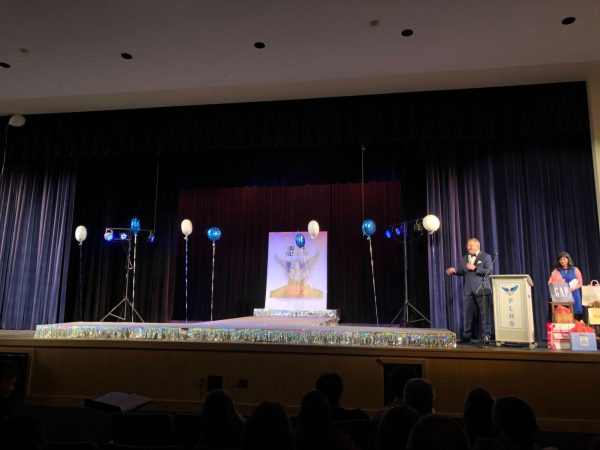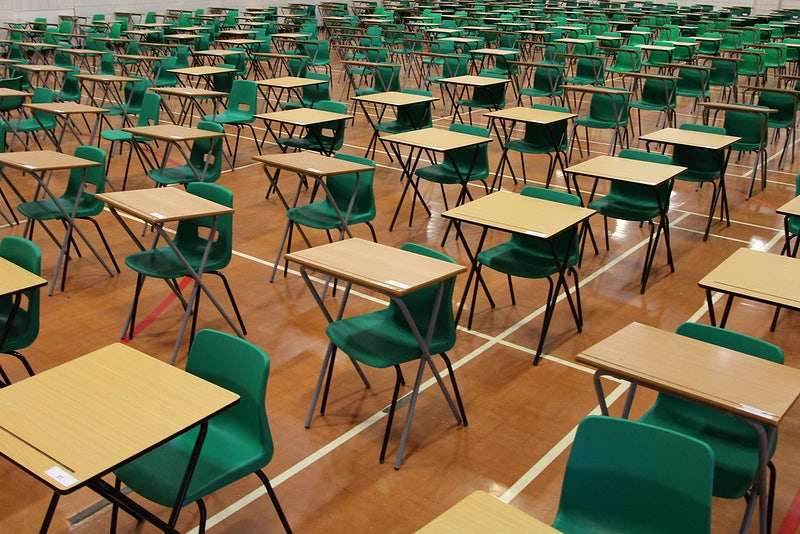On May 15th, 2022, Falcon Fashion was back. The annual event returned for the first time since Covid, bringing together more than 80 seniors and staff to model the newest local clothing and fashion. Though 2022’s attendance was lower than in past years, it made sense, as the Covid pandemic had thrown everything out of order. If anything, 2022’s turnout made it seem like Falcon Fashion would be able to hit the ground running from its hiatus and continue to be a fun way for seniors to round out their time at Ludlowe.
But on January 9th, 2024, the event was canceled for the second year in a row due to not enough seniors signing up. What happened?
Falcon Fashion isn’t the only Ludlowe tradition to take a hit in recent years. The Class of 2025’s Blue and White Dance in spring 2023 was canceled due to only 18 students buying tickets. The Class of 2026’s dance in fall 2023 was additionally canceled, and the Red & White Charity Ball nearly didn’t have enough signups, with the organization having to consolidate the normal two dances into one.
In fact, just days ago, the Class of 2025’s Spring Fling dance, supposed to be held on March 1st, was canceled. A total of eight students had bought tickets.
There are several factors the administration sees as reasons for the seeming student disinterest in some events. “What I noticed is that people have a harder time committing to something that’s in the future,” Dr. Hatzis, Ludlowe’s Head Principal, said. Especially for longer-term events like the Red & White Charity Ball—which requires commitment in October for an event that won’t happen until January—there’s a fear of losing out on a better alternative, Hatzis mentioned. “You don’t want to miss out on that potential party, concert, whatever,” he continued.
Especially for younger students, as shown by the two canceled sophomore dances, Hatzis sees a sense that people don’t want to sign up for something unless they know their friends also will. It only takes one person, he continued, to say that something would be fun to do before everyone starts signing up—“but if there’s nobody who was bold enough to be that first commit, it almost doesn’t seem to matter.”
He noted that for the sophomore dance, class advisors had gotten gift certificates to downtown businesses—Saugatuck Sweets, Colony Grill, all places popular among students—but it didn’t matter, because the real deciding factor was social pressure.
But at the same time as events like Falcon Fashion and some school dances are struggling, others are thriving. The volleyball and badminton tournaments, recently covered by The Prospect, brought relatively high interest. Other events, like junior and senior prom, are shaping up to still be major attractions post-Covid.
“I think what’s the incentive, and what’s the reward that people see, are major questions,” Hatzis said when asked about possible reasons for this divergence. “What value do I see in it? Things like playing volleyball with your friends, having a fun spirited competition, maybe those things are still valued”—not to mention the benefit of getting excused from class for the tournaments and similar activities. Conversely, for Falcon Fashion, he thought that maybe getting dressed up, walking the runway, and hanging out backstage didn’t have the same value that people used to see in them, plus that it occurred on a Sunday.

Class officers have also seen the trend of less involvement in school sanctioned events. Caity Yang ‘25, the secretary of the junior class and one of the architects of the fallen Spring Fling, saw it, especially for dances outside of prom and homecoming.
“For Spring Fling specifically, a lot of students basically said that they didn’t want to go to a school dance,” Yang said, “likely because the dance was going to be right between Counties and prom.”
But Yang also thinks there are other reasons at hand. “Honestly, there are a lot of parties outside of school that offer more than the school can legally—like less supervision and access to alcohol,” she stated.
“I think most of it is that there is less actual outreach from the people who are planning the events,” said Matthew McKinnis ‘24, the vice president of the senior class. From what he has seen, the senior class doesn’t have as much of an issue. “I think the officers and groups work really hard to ensure that people know about it,” he continued.
However, McKinnis also sees the problems for other grades as rooted in the Covid pandemic interrupting their social development. “Because of that, people have less ability to reach out to everyone in their grade so it’s a lot harder, and I think the advisors of the clubs don’t really know how to make up for that, because they’ve never experienced this before either,” he continued.
Some school events have been able to rebound following struggles. When Battle of the Houses was brought back in 2022 after Covid, the only students who had ever experienced it before were that year’s seniors, who barely remembered it, Hatzis explained. “Nobody seemed to want to really do it,” he remembered, “but then at the end of the first one, people went bonkers.”
“That one was easy, because we kind of forced everybody to go—but for stuff like dances and events that are out of school, it’s harder to do that.”
With student interest posing a problem for many school events, some people hope a way can be found to solve this issue. But many don’t see clear solutions.
“I don’t see an easy fix,” Hatzis stated. He noted that there’s important factors that have drawn students in the past to events—food and possible advantages for college being two of them. He lamented the latter, calling it “sad but true.”
“I hate to bring that up, but it really resonates with a lot of students,” Hatzis noted.
“But I also have a lot of faith that some things just touch people from an altruistic standpoint. If they see a cause that’s worthwhile, that can also increase participation—people will feel like, ‘hey, let’s do it for this reason,’ because they want to feel good about it,” he continued. “And they want to help out.”
However, others were blunt about the seemingly unsolvable issue declining student interest seems to pose. On the topic of possible solutions, Yang said, “I don’t know.”
“I think building up community in a grade with events is really important, along with improving communications,” said McKinnis. However, he also shared Yang’s lack of solutions.
“I don’t know exactly how to do that and it’s a tough issue, but it needs to be done.”








